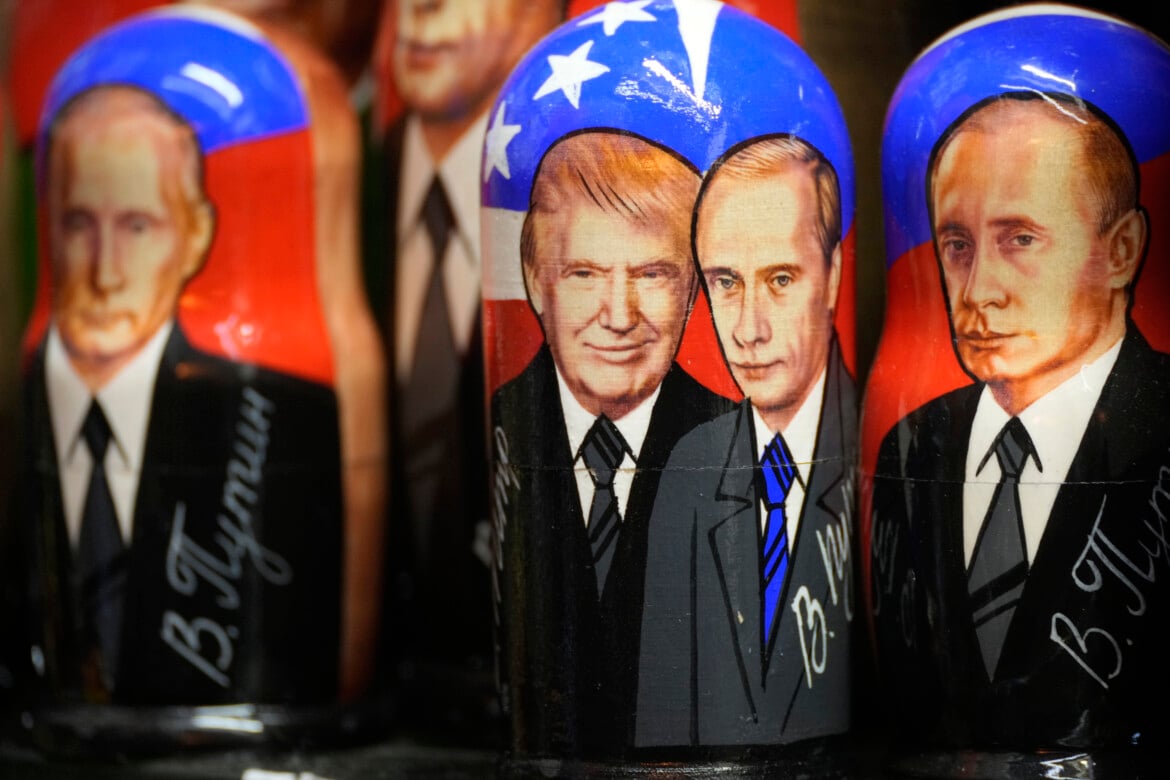Commentary
An Abraham pact from the Gulf to Ukraine
What could drive the Saudis and the Arab world to accept Trump's outlandish-sounding plan for Gaza, which they have outwardly rejected? Rubio went to Prime Minister Netanyahu bringing as a gift the most sensible “argument” the Jewish government will listen to: bombs.

After being openly insulted by Trump, Zelensky is on his last legs; meanwhile, we almost missed the fact that Saudi Arabia has already unofficially joined the Abraham Accords, the framework of Arab states friendly to Israel that is getting broader and broader in its objectives. One clear signal is Prince Mohammed bin Salman hosting the summit between Lavrov and Rubio.
As is well known, Riyadh is the leading member of OPEC, has never sanctioned Moscow, and is also, and most importantly, the leading light of the Muslim and Sunni world because it controls the Mecca pilgrimage sites.
Just like Trump, Saudi Arabia does not particularly care about the fate of Ukraine, or that of Gaza. While people in Europe are now tearing their hair out over Kyiv, they are not doing so, and will not, over the future of the Palestinians.
The new American diplomacy provides rewards for those who follow Washington's instructions and stiff punishments for those who refuse to obey. And Trump will brook no defections from the Abraham Accords, because it was he who promoted them in his first term and because he is envisioning making Israel the only superpower controlling the region, eliminating or minimizing Iran's influence.
For Zelensky, it is understood that he has only punishment to look forward to if he doesn’t accept peace with Putin, who in Trump's vision must serve as a bulwark against China, and must also be pried away from his ties with Tehran, which has so far supported Moscow's war effort. This aspect is perhaps more important to Trump than the fate of Ukraine’s territories, and also ties in with his plan to empty Gaza of Palestinians.
Kyiv and the Strip are nothing but small and problematic baubles on the map for the new U.S. administration: they’re taking up energy which should instead be channeled towards the China front. That is why Riyadh is the ideal venue for the Russian-American summit: for Saudi Arabia and the Gulf monarchies, the Islamic Republic of Iran – which Netanyahu's security plan also obsesses about – is a historical enemy.
Ancient accounts are being settled, but also recent ones: in 1980, when Saddam Hussein attacked Iran, the Gulf monarchies financed Iraq to the tune of $50 billion – in today's money, more than Kyiv got over the three years of war – but to no avail. Even worse, in 1990 Baghdad invaded Kuwait. And in 2003, the fall of Sunni Saddam at the hands of the United States was perceived by the Gulf countries as a defeat that left a free hand to Tehran and its allies. In more recent years, Iran, by backing the Houthis, dealt a solid defeat to the Saudis right on their doorstep. And Riyadh will not forget the attacks on its oil facilities by pro-Iranian militias, to which the U.S. responded with a shrug.
But with Trump, everything has changed. This was made very clear when Marco Rubio made a stop in Israel before arriving in Saudi Arabia. What could drive the Saudis and the Arab world to accept Trump's outlandish-sounding plan for Gaza, which they have outwardly rejected? Rubio went to Prime Minister Netanyahu bringing as a gift the most sensible “argument” the Jewish government will listen to: bombs. Namely, the MK-84s recently authorized by the Trump administration. These are free-falling ordnance whose first version entered service in the Vietnam War. The MK-84 has been given the nickname Hammer, to emphasize its great destructive capacity.
For whom are these bombs intended? For Hamas, certainly, which as both Trump and then Rubio made clear, in full agreement with Netanyahu, “must be eliminated” – something that many Arab states will be happy about, after all. But more importantly, they are a prelude to a second phase of the war against Iran: the elimination or neutralization of the Islamic Republic's war apparatus – including its nuclear capabilities – is the real strategic goal of the Israeli-American military-industrial complex. Riyadh and the Gulf are called upon to pay for more or less all of Trump's plans, but could they say no?
A new conflict between Iran and Israel is at least possible, if not likely: the Americans, the Israelis, and also Tehran are all saying it. One only has to read the latest statements by the parties involved. British Admiral Tony Radkin, in a speech at the Royal United Service Institute in London, said that in Israel’s Oct. 26 bombing campaign, it managed to destroy almost all of Iran's air defenses and its ability to build ballistic missiles for at least a year. Israeli F-35s launched missiles from at least 120 kilometers (75 miles) away from the targets, out of the range of interceptors. The Iranians didn’t even see them coming on radar. Radkin concluded that the Israeli military and intelligence advantage is beyond the reach of any regional adversary.
And the Russians and Chinese have also noticed this, because this war in the Middle East against Iran and its allies goes far beyond the confines of the region.
In the vision of Trump and Netanyahu, the plan for Gaza and the likely territorial concessions to Putin in Ukraine have one key corollary: American recognition of the annexation of the West Bank. After all, why stop at Gaza? For the Palestinians, the message is clear: there is no possibility of compromise with Israel and its American ally, at least in its current form, because they are determined to eliminate the Palestinian people. All with the hypocritical and hidden complicity of the Arabs and, of course, ourselves.
Originally published at https://ilmanifesto.it/un-patto-dabramo-dal-golfo-allucraina on 2025-02-20
